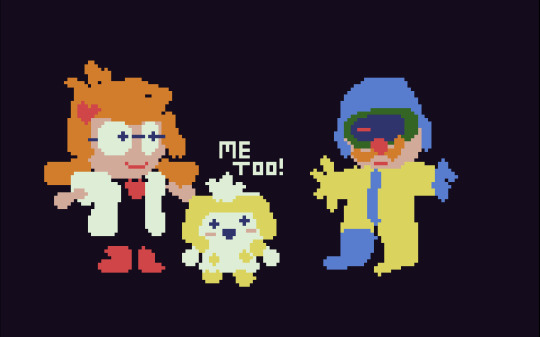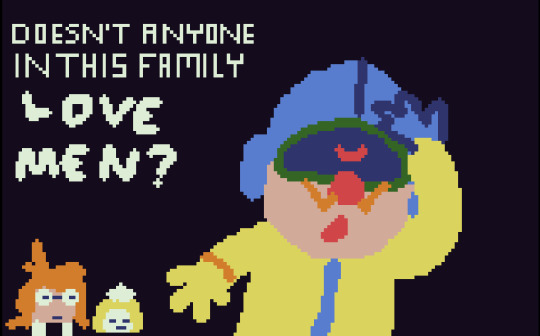#<- not to exclude him oor anything
Explore tagged Tumblr posts
Text




happy pride i made this on flickgame in like 20 minutes <33
#warioware#dr crygor#penny crygor#mike warioware#<- not to exclude him oor anything#lesbian#gay#made this at liike 2AM i was LOSING my SHIT#based on another post i saw that cant find for the LIFE OF ME#que sera sera??#art
25 notes
·
View notes
Text
a response
Text written January 2018. For Romy Rüegger, Language is Skin: Scripts for Performances, Archive Books, Berlin, 2018.
https://www.archivebooks.org/2018/04/03/language-is-skinscripts-for-performancesby-romy-ruegger/
I’ve been asked to write a response for this publication. [1] I’m writing from the perspective of having witnessed some of Romy’s processes and performances, and having read these texts during their editing. What emerges is a response to a working method.
Romy writes,
‘Words that move along – from one body to an other’
and later,
‘In the archives I do not find anything about you, the witnesses are all dead’.
I think Romy and I share a question.
How might we listen together to what cannot be heard, what is excluded, and cannot yet be expressed?
Recently, I’ve been thinking about reparative listening; reparative not in a sense of gendered, racialised and classed caring labour fixing a broken system, but reparative in a sense of… Is there a point at which, if enough people listened differently, the system might collapse and something reparative emerge? These thoughts bring together theories, queer, critical, anti-racist, feminist. I read and listen but often struggle to articulate myself clearly, to find the language right there on the skin of my fingers. A friend has been making paintings of eyes and mouths on hands, asking one to imagine what the eye would know if it touched, what the hands could know if they allowed some kind of entry. I think perhaps that Romy has auditory passages opening on the ends of her fingers, openings allowing entry. I think of her reading in archives, gathering, accumulating, sifting, editing, assembling, reconstructing, stirring, taking things in to breathe them back out living; a circulation that is repeated when she asks the audience to move around as her body makes the space where they must listen to the carefully collected fragments of neglected and violently suppressed narratives. And the voice that speaks refuses to speak loudly, instead it insists, it demands… Come closer, listen more carefully, come so close that you have to touch and be affected.
*
A note to Romy and to you.
While we were reading we were writing. While we were listening we were writing. [2]
Editing is care work, editors are ‘caseworkers for the commons’ [3] editing the past into a common resource. Editing is additive, performative; speaking through. Being possessed. Having a mutable body that carries multivalently, simultaneously, in quantum spacetime. There is dirt on your fingers, on the skin of your words, as you sort through the archives. Artist. Editor. Feminised labour in many cases, including ours.
Collecting: additions, specifics, eliminated materials. Banding together.
*
‘After all, totalitarian regimes do not impinge only upon concrete reality, but also upon this intangible reality of desire. It is an invisible, but no less relentless, violence.’ [4]
Careful seeking,
carefully seeking,
carefully, seekingly.
Writing a quiet voice thinking round the edges maybe, ‘the little edges.’ [5]
Taking listening walks in your grounds, I ‘walk as if the soles of my feet were made of ears.’ [6]
Texts that were written to be spoken. This text was written as spoken, it was transcribed from your speech, indirectly. It notes the small refusals, it notes the large insertions, it notes the effort, it notes the care. The dirt on her fingers is accompanied by anger. Her voice carries it steadily, forcefully. Listen. She imagines on towards an equality through her writerly care, through how she focuses her attention, because there isn’t such an equality in discrimination.
She intends an interruption, another interruption, for she interrupts daily via her bodily non-reproduction, via her co-construction of networks of care, via her refusal and her excess. She is interrupting – ‘Unlearning, undoing, undergoing, white privilege, hopefully confronting, transforming and shifting attention’ [7] – in the loud, loud sounds of a contested now. A now that is everything that happened before and everything that might come.
(Turned inside or out, this she is plural. A many, a they, a we. A she-not-I-her, a me.) [8]
*
‘First of all, trauma, in Greek, means wound, injury and it comes from the verb titrosko – to pierce. However… It was found that the root verb is teiro “to rub” and, in this context, in ancient Greek it has two meanings: to rub in and to rub off, to rub away. Thus, according to the original definition, trauma is the mark left on a person as a result of something being rubbed onto him or her. Then, depending on the way that the rubbing took place there are two different outcomes. More specifically, when a powerful and intense experience is rubbed in or onto a person, the “trauma” could be either an injury (rubbed in) or a new life, where the person can start with a clean slate and with the previous priorities erased (rubbed off).’ [9]
I’m leaving these like this. Usually, it would be anybody, but any body speaks better of the medicalisation situation. With border line there is also the option to make it borderline, which is used in the name Borderline Personality Disorder (BPD). I’m not sure if this is something that you’re alluding to or not so I wanted to tell you this, that if you make it borderline, it also hardens the meaning of border line into something explicitly medical (and BPD is highly gendered, often a female diagnosis). I think you’re referring to bodies and borders in the sense of migration and racism and no borders and so on, but there is this desolate hospital that we’re in right now.
A world tangled up in words, bodies entangled in the material effects of violent discourses. This is where she points, where she inserts herself: amid the slippages, among the profusion of associations to take care of with each word written. ‘What opens up between two fields of language. A place in between. Between the inbetweens. Walking around in the inbetweens.’ [10]
*
The subject object distinction is broken. It is constructed to break black bodies for its own existence and needs to be destroyed. [11] We’re writing in English, the most violent existing language, trying to keep the distinction fluid because it is broken. You do what you can with what you’ve got. How to write in English about the voice that these texts were spoken in, the movements that mapped them out in space amongst bodies. How to write in German about the voices that were never written down, to speak them into English, to say them out loud.
‘In German “they” somehow would imply an implicit othering. In English this is not the case?’ [12]
My spellcheck corrects othering to mothering and bothering. I am satisfied with both of these forms of action brought together now as an inseparable pair. I remember hearing Fred Moten talk about reclaiming mothering from capitalist social reproduction. Interrupting again. Existing antagonistically. Caring is affirming the space you want to be in that doesn’t exist yet. But the word I intended to write is excluded from the normative structure of the computer dictionary.
It’s because you started with someone. In English you can use they as a gender neutral way of speaking about a person. Someone isn’t the same as one. This is tricky because using one makes the voice sound detached from the situation, a different form of separation. I used they, it’s more everyday so it puts the voice more in the situation. I’m not sure you can translate this concept of one very well where you can have a neutral subject that’s part of the whole. Maybe in English they depends a lot on the tone of use in how othering it is. But you’re right, it’s never mothering. I often use a second person you to keep the subject/object distinction between the reader and the subject open but you can’t do that here because of the previous paragraph…
‘Without “separability”, difference among human groups and between human and nonhuman entities, has very limited explanatory purchase and ethical significance.’ [13]
You want to destroy the whole thing.
*
Because what Romy is getting at with her careful readings and assembled texts is the very thing that evades language: trauma. Sexual violence, racial violence, class war. The circumstances are everywhere and always, the mechanisms of oppressions are various, the power relations intersect and diverge. People harming people by action and omission. And pain, as Elaine Scarry says, is outside of representation, so it is difficult to share. In amongst the trauma, between the rubble and the dust, Romy is listening for excess and possibilities for thinking differently, insisting that we join her.
*
[1] Romy and I have worked together before, once in Zürich for Speaks with Silence, organised by Romy with Side Room and OOR, and once at Transmission Gallery, Glasgow where Romy made Reina Ilora Reads for an event, Undoing Listening, that I organised in 2017. At this second encounter, there was sign language interpretation, and Romy responded to this by incorporating the figure of the interpreter directly into the text and staging of her performance.
[2] While I was making watching you/Olive Michel and Fred Hystère perform Touching Tones with Tender Buttons in OOR Records, I was writing another text that is also this text. I wrote you an email afterwards. While I was projecting captions and watching you/Romy Rüegger perform Reina Ilora Reads with a sign language interpreter in Transmission Gallery, I was writing this text and another text that remains as yet unwritten. While I was reading your translations of the texts in this book and copy editing them, I was writing notes, some of which are in this text, along with notes that you wrote in return. There are quotes from your texts and from others here too.
[3] Sarah Blackwood, Editing as Carework. The Gendered Labor of Public Intellectuals, 2014. avidly.lareviewofbooks.org
[4] Suely Rolnik, Deleuze, Schizoanalyst, in ‘e-flux journal’, issue 23, 2011.
[5] Fred Moten, The Little Edges, Wesleyan University Press, Middletown, 2015.
[6] Misremembered line from Pauline Oliveros, Sonic Meditations, Smith Publications, Sharon, 1971.
[7] Email exchange with Romy.
[8] I’m responding here to a she that occurs in some of Romy’s scripts, a she who is sometimes, often, the writer but who also slips and switches between bodies, temporalities and identities. See Reina Ilora Reads, Are You an Underground?, E lei qui sottolinea and Reading Recorded Voices. This is not separate from histories of oracles, possession, ventriloquism and the everyday experiences of being a she.
[9] Therapeutic Care for Refugees. No Place Like Home, R. K. Papadopoulos (ed.), Karnac Books, London, 2002.
[10] Romy Rüegger, ‘If You lived Here, You Would Already Be at Yours’. In Language is Skin: Scripts for Performances, Archive Books, Berlin, 2018.
[11] See Denise Ferreira da Silva, Hacking the Subject. Black Feminism, Refusal and the Limits of Critique, lecture at Barnard College in 2015.
[12] Email exchange with Romy.
[13] Denise Ferreira da Silva, ‘On Difference Without Separability’, in 32nd Bienal de São Paulo. Incerteza Viva, J. Volz and J. Rebouças (eds.), Fundação Bienal de São Paulo, 2016.
0 notes